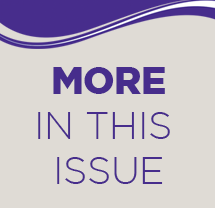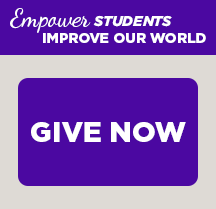The transition from high school to college is daunting at best. But for an underrepresented, underserved, or diverse student, that transition can go from daunting to doubtful.
The number of students of color enrolled at WSU nearly doubled during the last decade, increasing from 5.7% of the total student body in fall 2006 to 10.5% in fall 2016. This percentage will continue to rise, but the one-year retention rate of African American, Latino American, Asian American, and Native American students at WSU stands at about 68% (versus 78% for Caucasian students). In fact, traditionally underserved students at WSU are 10% more likely to drop out within their first year and 15% more likely not to graduate within four years compared to the university’s Caucasian students.
A program formed in partnership between the offices of Inclusion & Diversity and Student Life & Development aims to make that transition for such students easier to maneuver – and in turn, increase the likelihood of graduating. For the last five years, the Success Coach Program has paired faculty and staff on campus with historically underrepresented or underserved students, especially within historically marginalized student groups. With research showing a positive correlation between students who have a faculty/staff mentor and academic achievement, the goal of the Success Coach Program is to provide a support system for these students, help them integrate themselves on campus during their first year at WSU, and show them that they can do well here.
During academic year 2016–17, approximately 20 faculty and staff mentors were paired with upwards of 40 freshmen who signed up for the program. To be eligible, students must meet one of three criteria:
- have a GPA of lower than 3.0
- have an ACT score of lower than 21
- or be designated as first-generation or low-income
Nathaniel Antwi ’20, from Champlin, Minn., came to Winona State specifically for his major – Composite Materials Engineering. While he admits that he initially signed up for the program because of the monetary stipend, over the course of the year it became more about what he was getting out of it rather than the money.
He met with his mentor, Chad Grabau – an assistant professor in physical education and sport science, at least once a week. “We went over my grades, where I want to be and where I should be,” Antwi said. “We talked about my plan for the week, like how I was going to organize my schedule.” He admits that he struggles with organization on his own, so the support he received from Grabau on that front helped him succeed in his first year. Composite Materials Engineering is a highly rigorous and competitive program, but after his first semester, Antwi’s GPA was 3.2. He is also looking forward to a planned job shadow opportunity at Wilson Sporting Goods in Chicago, Ill., where he would love to work someday.
Over the course of its five-year history, the Success Coach Program has served over 150 students with remarkable results. Take last year’s freshman cohort – after the end of the fall 2016 semester, 81% of students who actively participated in the program came back in the spring. Results from the previous year were similar at 86%. The retention rate, academic standing and completion rates are all higher among those students who meet regularly with their coaches, making the impact of the program truly evident.
It was also Grabau’s first year in the program, getting involved due to his interest in helping first-year students. It’s his belief that it’s hard to be successful in school if things aren’t going well in your personal life, so he routinely asked Antwi how he was doing on a personal level. But along with that came the balance of still being able to set and enforce expectations while maintaining the personal relationship. So while he wanted Antwi to know that he could talk to him about anything, he simultaneously set expectations in terms of proactively meeting with his academic advisor, seeking out tutoring assistance, being comfortable approaching faculty and staff to ask questions, and networking. He also emphasized the importance of Antwi having a social life and setting aside time with his friends.
Often times, there is a perceived authoritative barrier where students feel like they can’t talk to, or they don’t know how to talk to, faculty, staff or administration on campus. The WSU Success Coach Program is a great way to break that barrier.
Part of the difficulty for diverse students is that WSU is a predominantly white institution – they don’t see a lot of other students and faculty that look like them. This program creates opportunities for students to see that there are people here to help and support them, which helps show them that they can do well.
Antwi said that having someone to talk to on both a mentor and personal level made him feel more comfortable on campus.
Coaches also have a support system through the program. The Office of Inclusion & Diversity holds monthly professional workshops geared toward working with students of color, where speakers are brought to campus to discuss specific topics. The workshops help attendees understand how to make sure they are having good, honest dialogue with their students and that they have the ability to cross-culturally mentor them. An added benefit of the workshops is simply getting the coaches together in the same room to connect with one another. Through those connections, they create more touchpoints throughout campus, which ultimately allows them to better direct their students to the correct resources.
Additionally, coaches are told from the outset that they are not meant to take on the role of an academic advisor or counselor – as there are separate services for those needs. Instead, they are meant to guide students, help them navigate resources on campus, and provide support in order to help them create their own goals. There are no set expectations for the coaches, but those who are a part of the program are dedicated to working with their students, and are encouraged to figure out what setup works for each of their individual student relationships.
“I think this program is exceptional in that it identifies the need to make sure that we’re doing the extra things, the little things to ensure student success,” Grabau said. “But it takes two, and it takes the commitment that Nathaniel had from day one. So he is the reason this has been a really great experience.”


